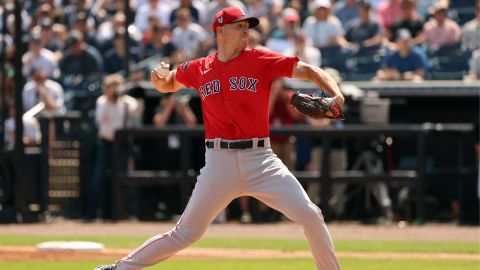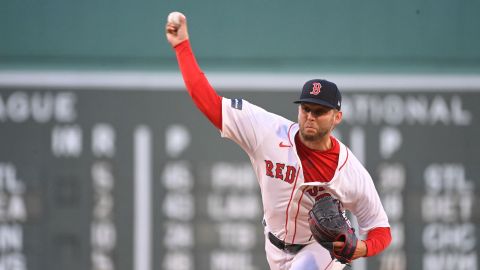Billy Beane. Moneyball. Oakland A's. All synonymous.
Not synonymous with those three things? World Series championship. At least not yet.
The philosophy of the A's general manager was widely praised when it was the focus of a 2003 book, "Moneyball: The Art of Winning an Unfair Game," written by Michael Lewis. The strategy focuses on a more modern approach to evaluating players, placing heavy emphasis on on-base percentage and slugging percentages over the flashier home run and RBI numbers.
Beane used that strategy to build A's teams that made it to the playoffs from 2000-03, winning the division in three of four of those years. The team averaged 98 wins during those years, but unfortunately for the A's, the common theme was that all five seasons ended with losses in the ALDS.
In 2000, the Yankees needed five games to oust the A's before going on to beat the Mets in the World Series. In '01, the A's blew a 2-0 series lead to the Yankees, who again represented the AL in the World Series. The A's lost in five games to the Twins in '02 before blowing another 2-0 series lead to the Red Sox in '03.
There are some people who subscribe to the theory that all a general manager can do is build a team that can make the playoffs, and what happens in the postseason can be chalked up to good or bad luck.
There are more people who would say that a championship contender is built from top to bottom, and that includes splurging on some big names.
That's where it gets tricky for Beane. Being tagged with the "Moneyball" mantra tends to make people overlook the money that the A's have spent. The team signed Eric Chavez to a six-year, $66 million deal, and had it not been for injuries, it could have been one of the best contracts in the game. The team also put a $10 million gamble on Ben Sheets this year, and he's rewarded them with a 4-9 record and a 4.53 ERA.
Still, the A's are positioned to be contenders in the AL West for the next few years, thanks to the young pitching trio (sound familiar?) of Gio Gonzalez, Trevor Cahill and Dallas Braden and also closer Andrew Bailey. But winning division titles (particularly in the AL West) and winning world championships are two very different things. Plus, those pitchers will all eventually need contracts, and if the past is a guide, they may only be able to keep one (like Barry Zito) and say farewell to the other two (like Mark Mulder and Tim Hudson).
The Matt Holliday trade also stands out for Beane's decision to ship the $13.5 million player to St. Louis for a trio of minor leaguers. The A's weren't contending last year when the trade was made, but it still made the free-agent signing seem a bit pointless.
Will the A's ever win it all with Beane's philosophy guiding the way, or will they have to spend like the big boys to bring a World Series trophy back to the Bay Area?
Share your thoughts below.
Friday, Sept. 10: What does Jason Varitek's future hold?



